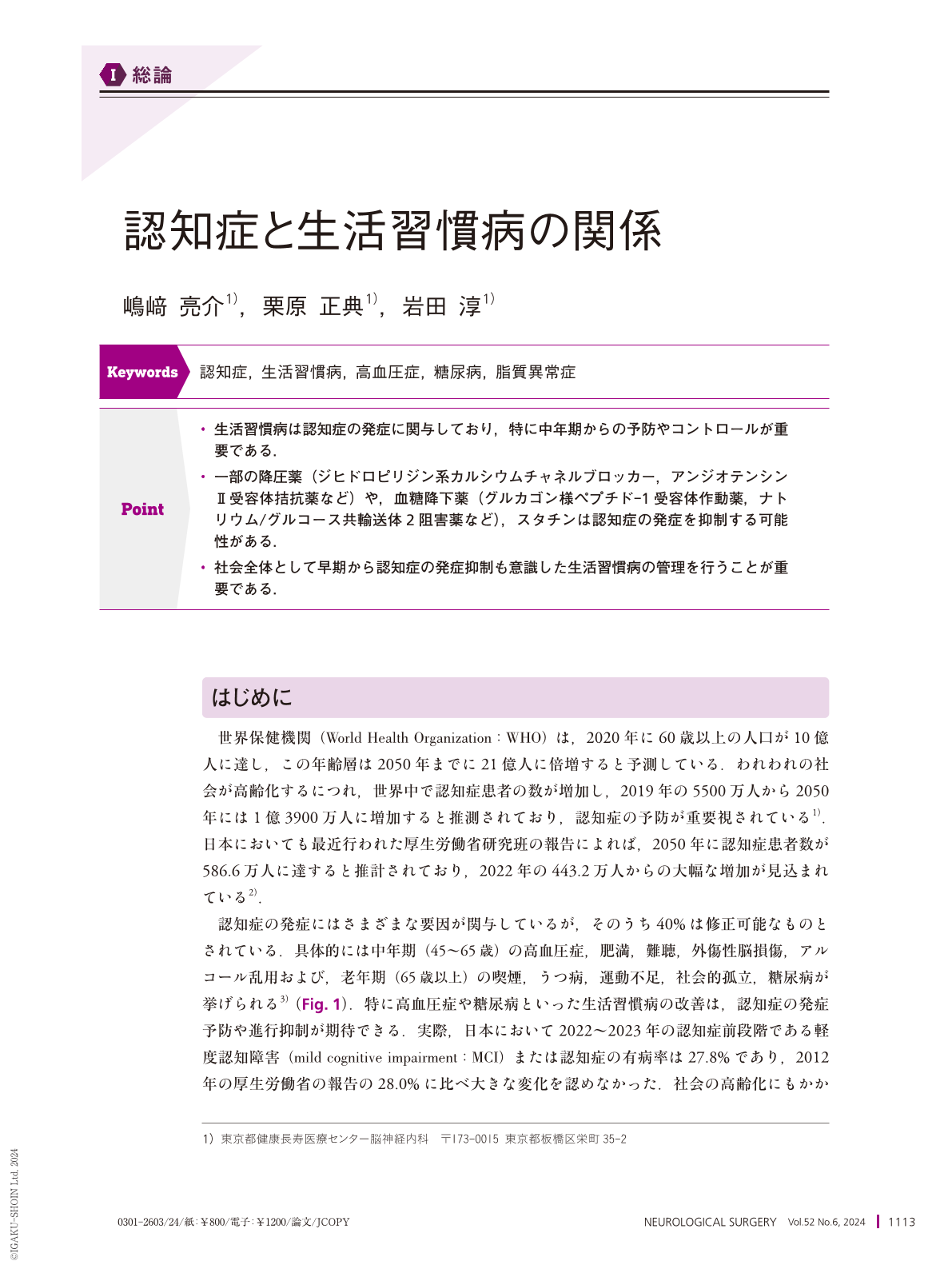Japanese
English
- 有料閲覧
- Abstract 文献概要
- 1ページ目 Look Inside
- 参考文献 Reference
Point
・生活習慣病は認知症の発症に関与しており,特に中年期からの予防やコントロールが重要である.
・一部の降圧薬(ジヒドロピリジン系カルシウムチャネルブロッカー,アンジオテンシンⅡ受容体拮抗薬など)や,血糖降下薬(グルカゴン様ペプチド-1受容体作動薬,ナトリウム/グルコース共輸送体2阻害薬など),スタチンは認知症の発症を抑制する可能性がある.
・社会全体として早期から認知症の発症抑制も意識した生活習慣病の管理を行うことが重要である.
As society ages, the number of people with dementia increases worldwide, and the prevention of dementia has become increasingly important. Lifestyle diseases are associated with the development of dementia, and preventing or controlling lifestyle diseases in middle-aged individuals is particularly important. Hypertension, diabetes, and dyslipidemia are associated with dementia. Hypertension is strongly associated with dementia, and strict blood pressure control is required. Among the drugs used to treat lifestyle diseases, some antihypertensive drugs(e.g., dihydropyridine calcium channel blockers, angiotensin 2 receptor blockers), hypoglycemic drugs(e.g., glucagon-like peptide 1 receptor agonists and sodium-glucose co-transporter-2 inhibitors), and statins may reduce the incidence of dementia. However, individual interventions for lifestyle diseases have only a limited effect in reducing the incidence of dementia. Comprehensive interventions may have significant effects. Clinicians involved in the management of lifestyle diseases need to have sound knowledge of these diseases and provide comprehensive management at an early stage.

Copyright © 2024, Igaku-Shoin Ltd. All rights reserved.


